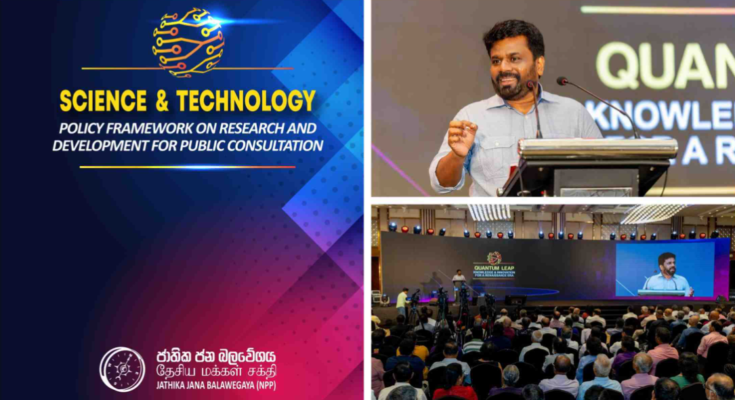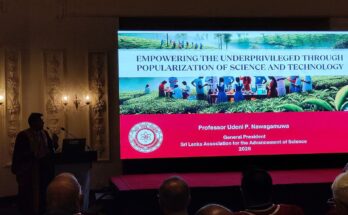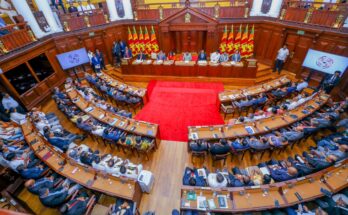The National People’s Power (NPP) recently hosted a groundbreaking event that marked a significant milestone in Sri Lanka’s history. For the first time, research and development (R&D) have taken center stage in political debates, attracting numerous resident and non-resident scientists, key science enthusiasts, and experts from various science-based industries. This event culminated in the release of the “Quantum Leap” booklet, the policy framework of the NPP, a pioneering move not only for Sri Lanka but also for the world.
In a country where myths tied to religious and traditional practices often overshadow critical scientific advancements, the focus on R&D presents an opportunity to transform the economy rapidly by harnessing underutilized or misused resources. Prof. Illeperuma delivered an insightful talk, critiquing the historical political leaderships while highlighting Sri Lanka’s rich mineral resources. He noted that Marie Curie sourced thorium from Ceylon, emphasizing the historical significance and future potential of these resources. Additionally, Prof. Illeperuma pointed out the presence of cobalt ore within Sri Lanka’s sea territory, indicating untapped opportunities for scientific exploration and economic development.
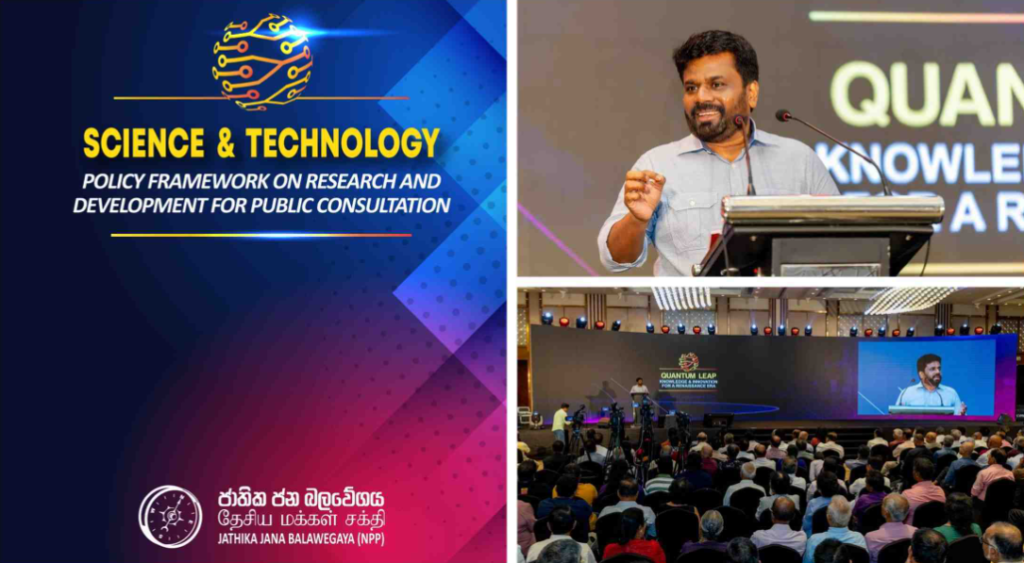
Prof. Gomika shared a snapshot of the proposed policy framework, introducing several new institutional structures designed to address the country’s diverse scientific needs comprehensively. He proposed the establishment of new institutes to reorganize the current institutional framework, ensuring a more cohesive and effective approach to R&D. Prof. Gomika also extended an invitation to non-resident scientists worldwide, encouraging them to contribute in various ways to the development of Sri Lanka, particularly in helping the country overcome its current economic challenges.
Anura Dissanayake, the NPP’s presidential candidate, articulated his and his team’s vision for the future. He emphasized that R&D would receive a substantial allocation from the Gross Domestic Product (GDP) under his leadership. Dissanayake pledged to invite expatriates to invest in Sri Lanka’s R&D sector, with the dual goals of improving local livelihoods and meeting global demands. His commitment to enhancing the country’s scientific infrastructure and capabilities highlights a forward-thinking approach that could redefine Sri Lanka’s economic landscape.
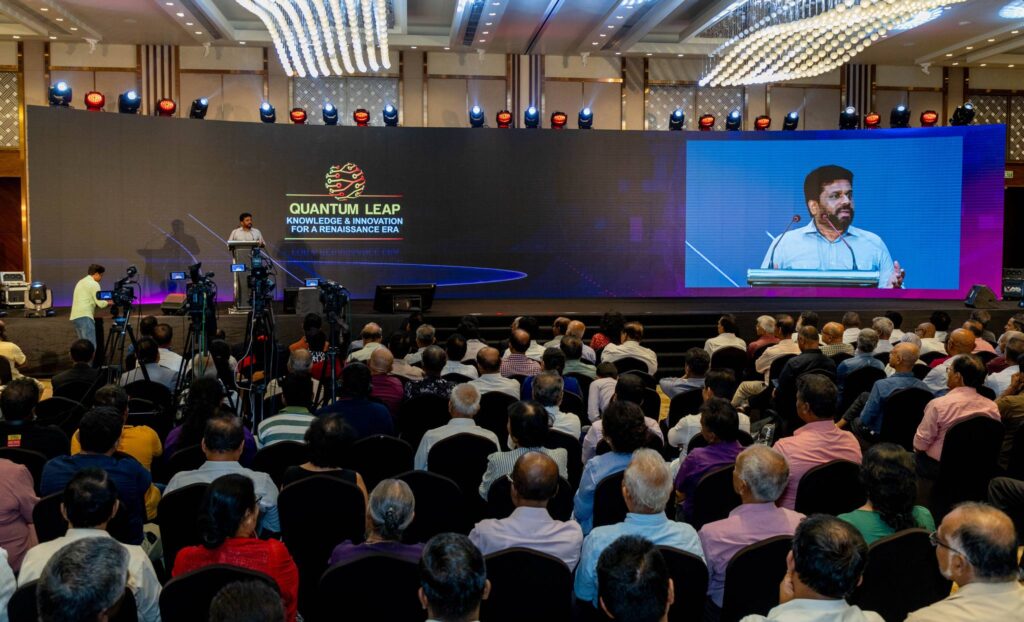
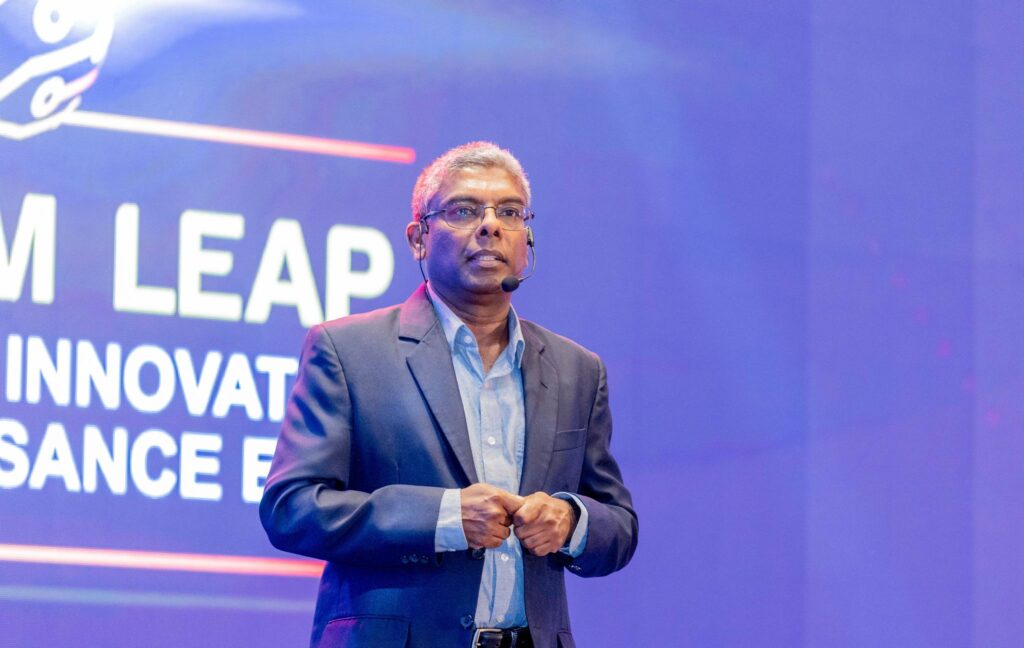
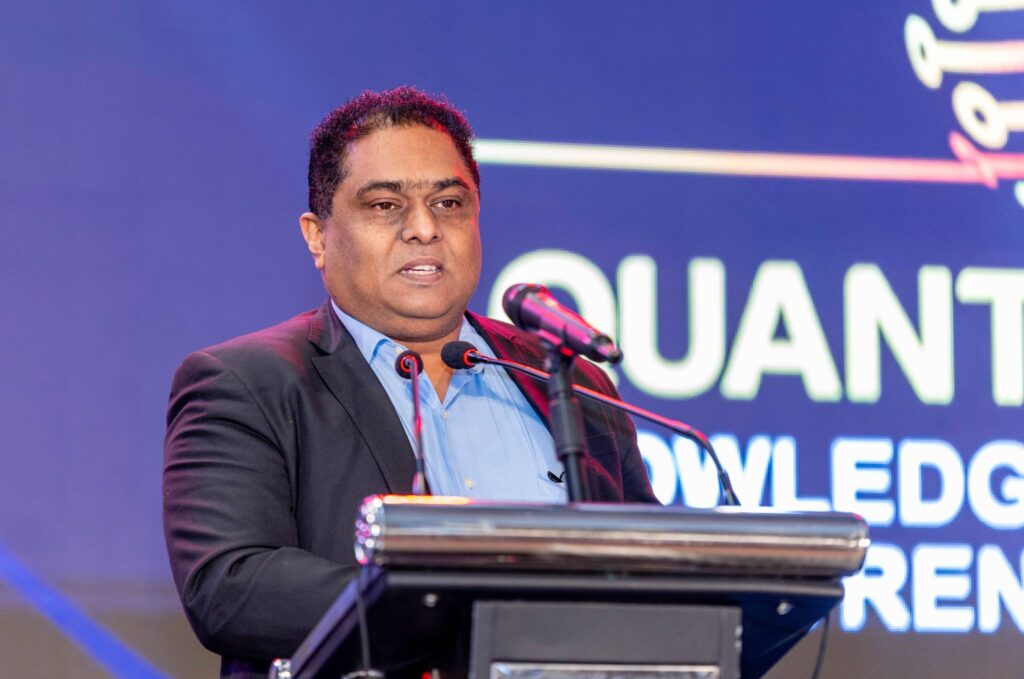
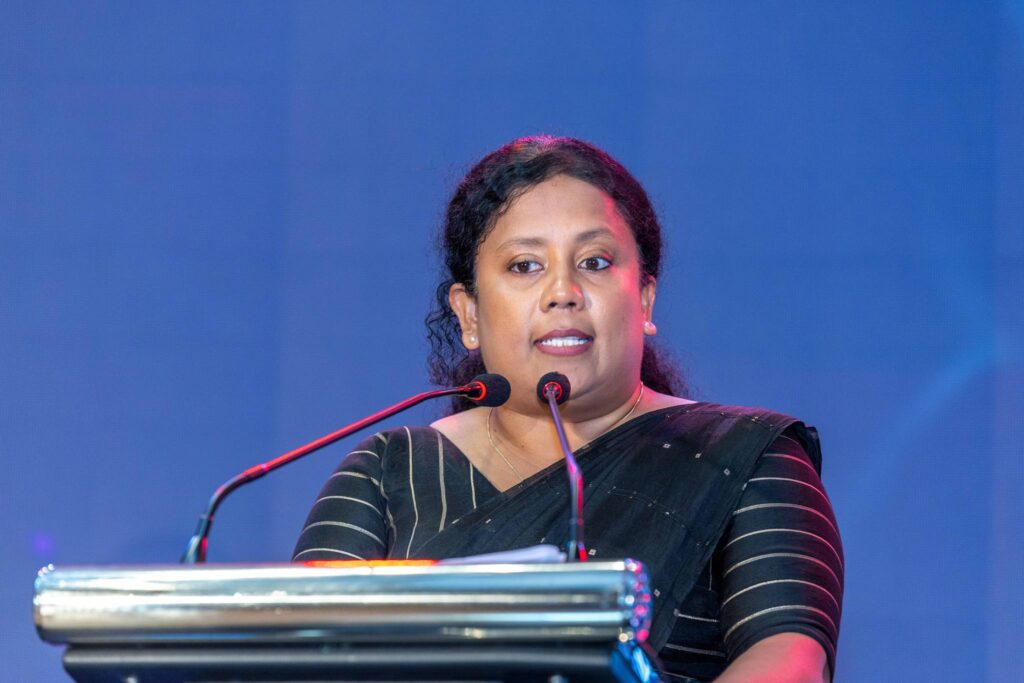
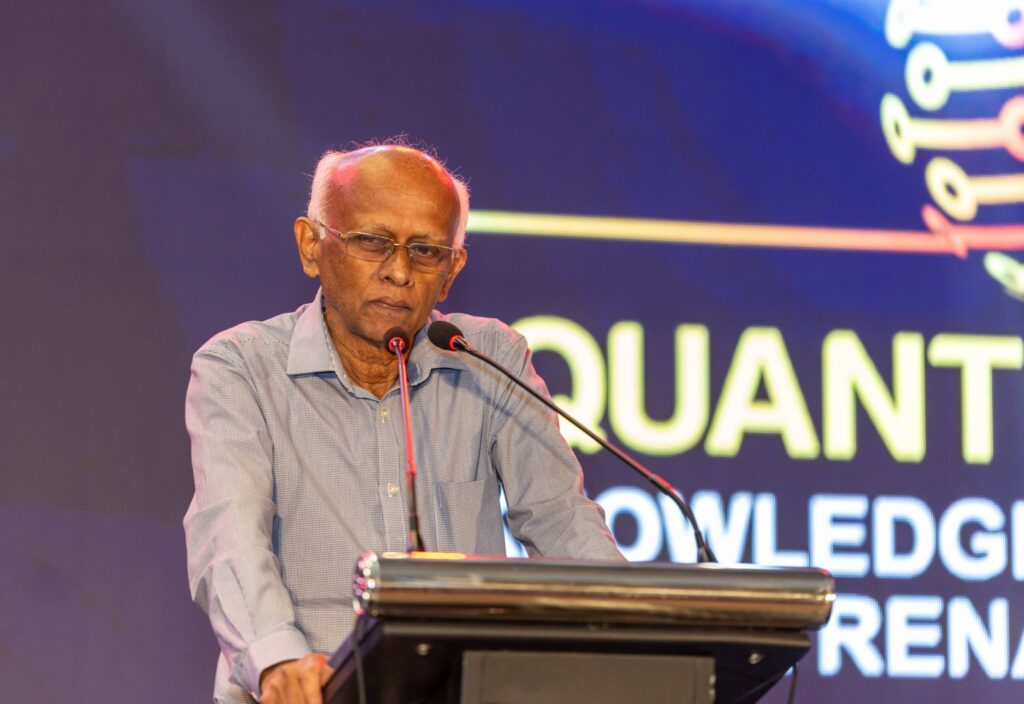
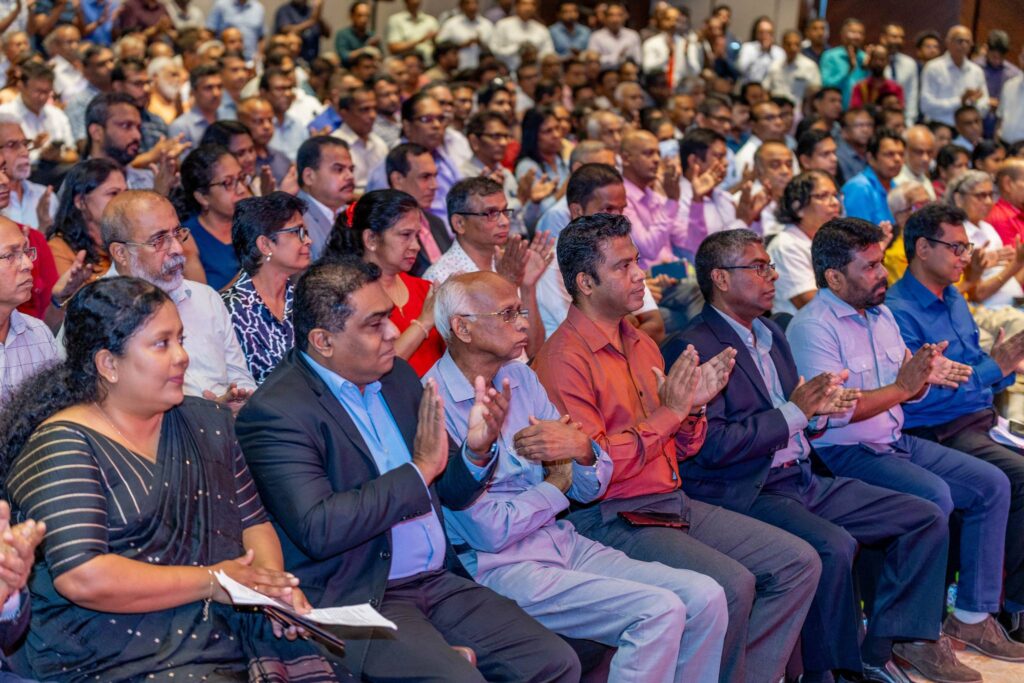
The Quantum Leap Booklet: Vision and Policy Framework for R&D
Vision: Innovation- and invention-driven research and development for economic prosperity, social wellbeing, and environmental sustainability
Overall Goal: Leverage science and technology by establishing a well-structured R&D mechanism, harnessing the potential for innovation and invention to elevate Sri Lanka to a new “Renaissance Era”
The “Quantum Leap” booklet outlines the NPP’s vision for innovation- and invention-driven research and development aimed at achieving economic prosperity, social wellbeing, and environmental sustainability. The overall goal is to leverage science and technology by establishing a well-structured R&D mechanism, harnessing the potential for innovation and invention to elevate Sri Lanka to a new “Renaissance Era.” The booklet identifies six priority areas for science and technology investment:
- Agriculture, Fisheries, Livestock, Food Security & Safety Sectors:
- Integrating advanced technologies such as precision agriculture and biotechnology to enhance productivity and ensure food security.
- Promoting sustainable aquaculture and livestock management to boost production and health.
- Health, Education, and Science Subject Sectors:
- Advancing healthcare innovation, improving educational outcomes, and strengthening scientific research institutions.
- Information Technology, Communication, Engineering, Energy, Maritime, Transport, and Other Technology-Related Sectors:
- Enhancing digital infrastructure, developing sustainable energy solutions, and improving maritime and transport systems.
- Environment, Land, Water, Air, and Mineral Resources Sectors:
- Implementing research-driven policies for environmental conservation, resource management, and climate change mitigation.
- Human Development, Art, History, Culture, and Heritage Sectors:
- Leveraging technology for cultural preservation, supporting interdisciplinary research, and investing in human capital development.
- National Security, Economics, Geopolitics, Public, and Foreign Affairs Sectors:
- Advancing research in defense technologies, informing economic policies, and strengthening geopolitical strategies.
The NPP has invited all experts to contribute further ideas to enrich the potential R&D policy for the country. This inclusive approach ensures that the policy framework will be comprehensive and reflective of the diverse needs and capabilities of Sri Lanka.
The Sri Lankan Scientist magazine was honored to receive an invitation to report on this landmark event. The NPP’s initiative has sparked a crucial dialogue on the importance of science and technology in national development. By prioritizing R&D, Sri Lanka has the potential to unlock new avenues for growth, innovation, and prosperity. This event signifies a bold step towards a future where scientific advancement and political vision go hand in hand, paving the way for a more sustainable and economically vibrant Sri Lanka.
For more updates and detailed reports on this historic event, stay tuned to The Sri Lankan Scientist magazine. We are dedicated to bringing you the latest developments in science, technology, and policy that shape our nation’s future.

